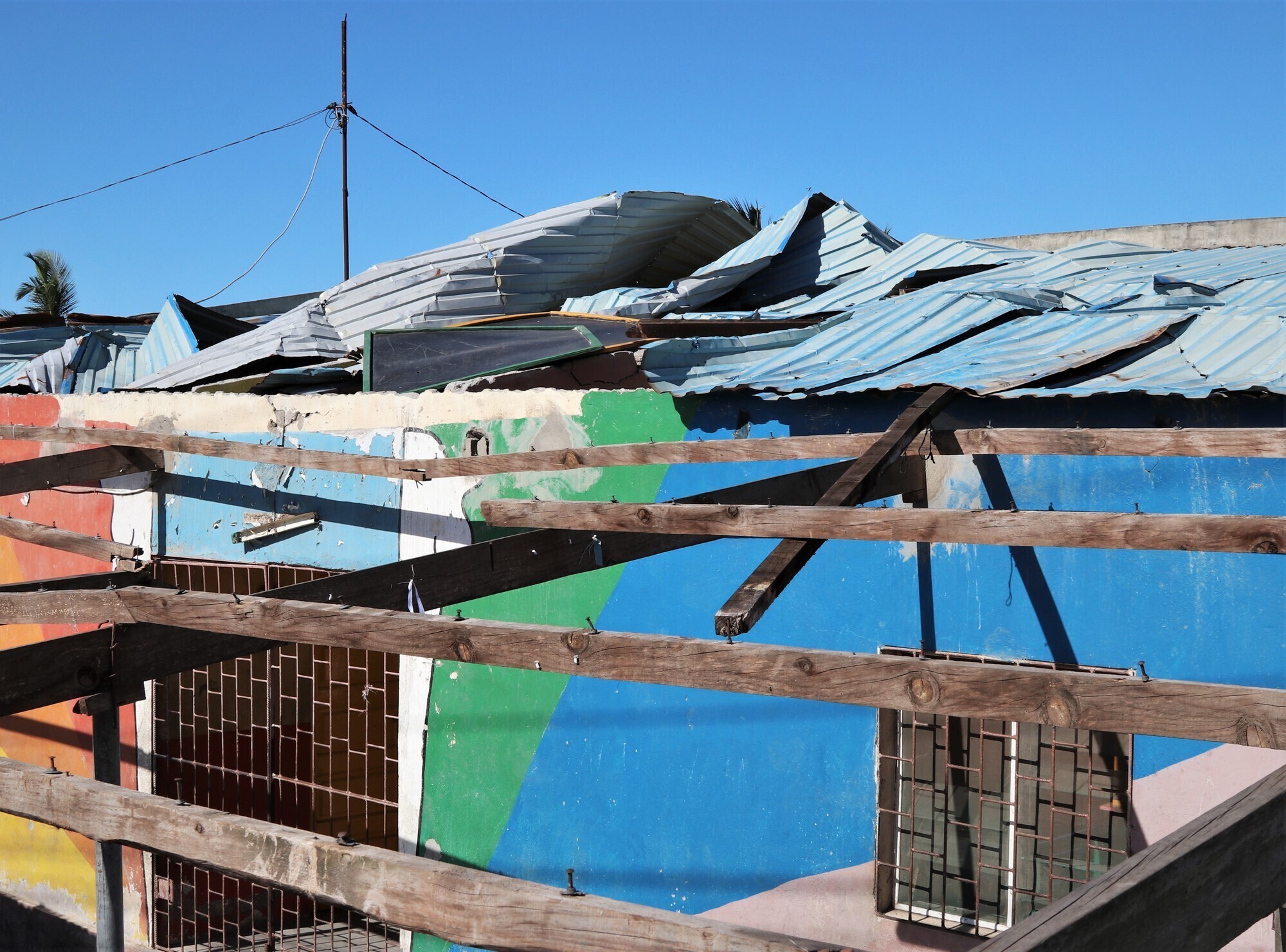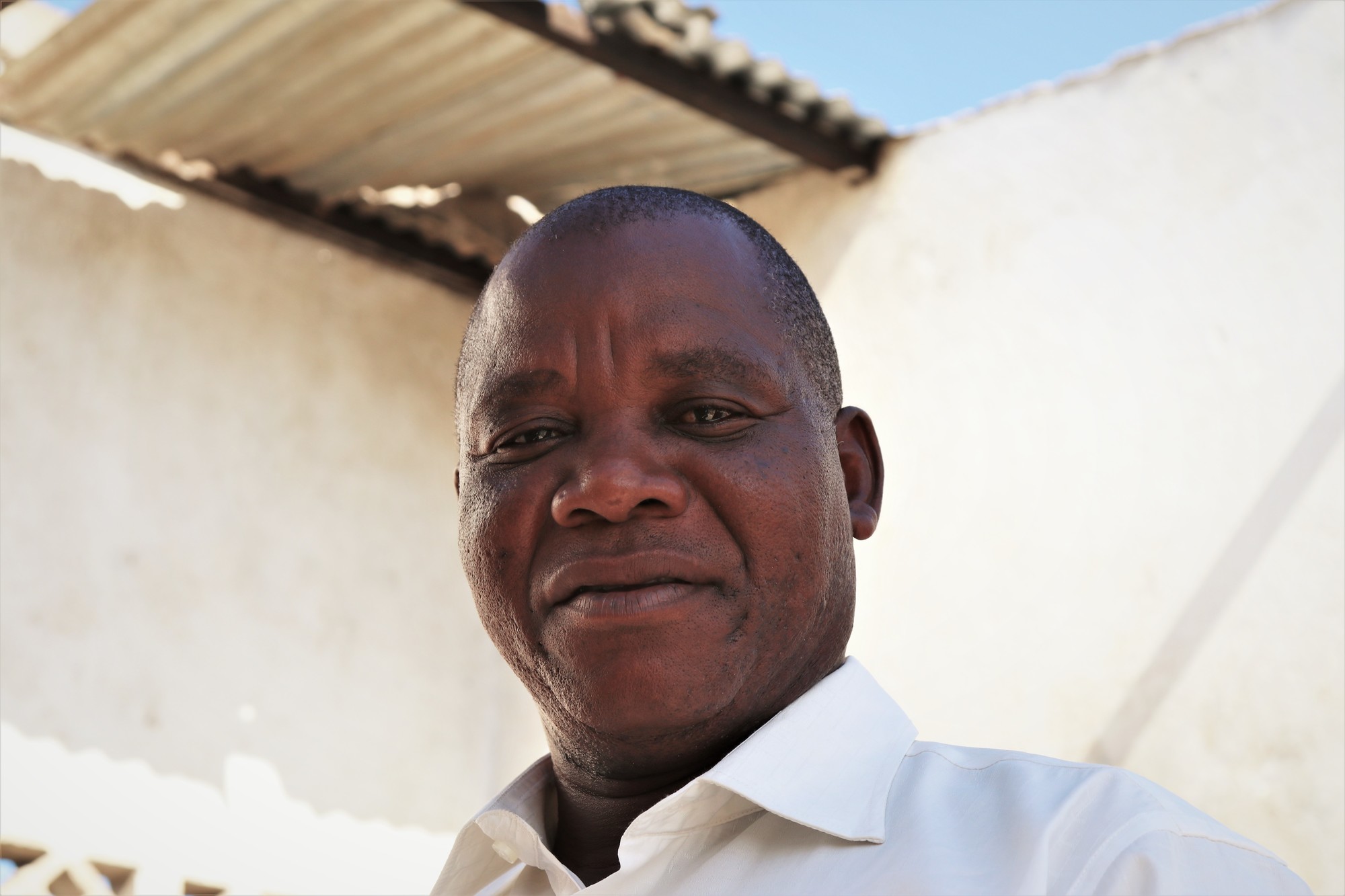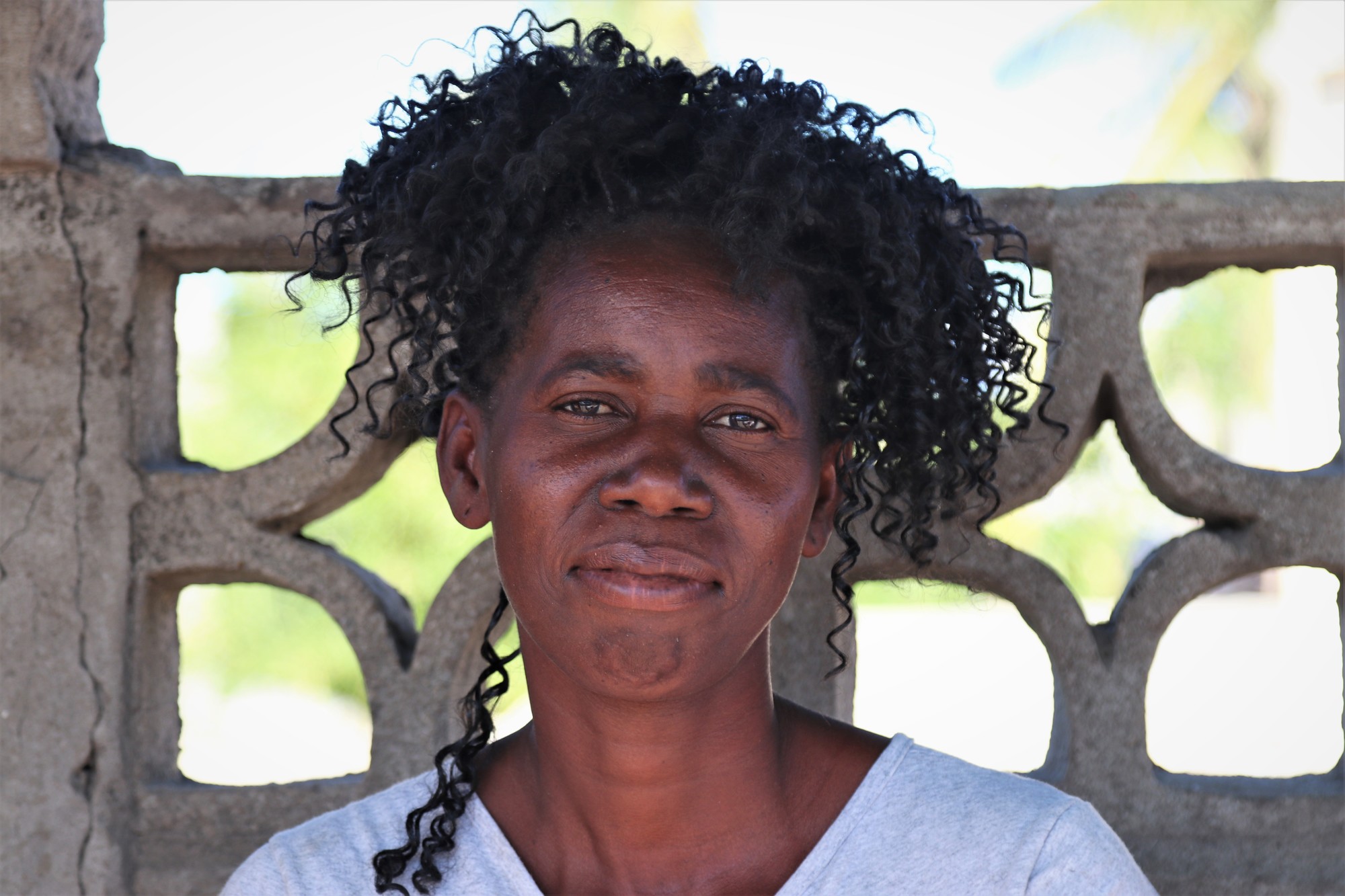Food brings 'hope' and 'promise'
MCC responds to great need in Mozambique in the wake of Cyclone Idai

Two broken chalkboards, thrown by the 115 mile-per-hour winds of Cyclone Idai, bake in the sun on what remains of the crumpled tin roof of one neighborhood’s only preschool.
In mid-March, Cyclone Idai slammed into central Mozambique near the coastal city of Beira, tearing off roofs, destroying homes and businesses, downing trees, displacing tens of thousands and killing hundreds. As the poorest, most densely populated neighborhood of the city, located on low lying land near the port, Munhava was particularly vulnerable.
“These neighborhoods like Munhava were already so vulnerable before the storm,” says Zacarias Zimba, program officer for MCC in Mozambique. “The low quality of the buildings, economic poverty, high rates of HIV and other infectious diseases—anyone could see this was going to be a disaster if it hit these areas.”
Idai hit Beira over a 12-hour period, peaking in intensity in the middle of the night on March 14.
“It was a nightmare when it came,” says Zimba. “It was very loud, very scary for all of us. We had never had something like this. It was the first time even for elders here, who told us that even their fathers and grandfathers had not seen this kind of wind and destruction. The amount of damage caught everyone by surprise. The power of the wind was so bad, concrete blocks and metal flying through the air, everything. It was just a nightmare.”
In the aftermath
Once the storm passed, MCC’s relief response to Munhava and other devastated areas of Mozambique began. In this neighborhood, MCC has a 13-year partnership with Associacao de Auxilio as Criancas Orfãós (AACO; Association for Assistance to Orphan Children), providing preschool education, nutritional support, girls’ empowerment and HIV support programming to some of the community’s most vulnerable people.

Francesco Caelano, AACO administrator and local pastor, says, “All the community was looking to us after the cyclone because no one else was doing anything to respond. Families were without hope or income or a way forward. They were in need of assistance just to eat the next day.”
With MCC’s support, AACO provided emergency food baskets with two months’ of supplies to 450 families in Munhava, representing about 2,250 people.
These food baskets contained rice, corn, beans, oil, salt and sugar, offering a foundation of nutrition for these families as they work to rebuild their lives.
“This food, it gave us hope,” says Francesco Zuba, AACO coordinator. “This help cannot be measured. It gave us a message of comfort and hope at a time when we had none. AACO with MCC was the first and only responder to these families.”

It was a great help to my family,” says Maria Inacio, who received a food basket and whose child is a student at the AACO preschool. “This cyclone brought so many losses to our family and community. Receiving the food was our first sign of promise.”
According to the latest data from the United Nations, more than 3 million people remain in need of basic assistance across Mozambique, Malawi and Zimbabwe following Cyclone Idai and Cyclone Kenneth, which struck Mozambique several weeks later. In Mozambique alone, nearly 2 million people remain in need, half of whom are children. MCC, along with its partners, is continuing to respond in Mozambique and Malawi.

